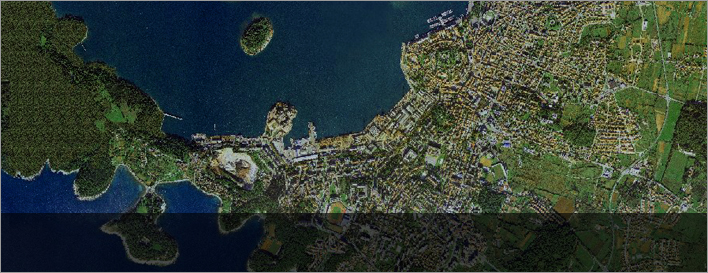Dr. Carol L. Silva


CO-PRINCIPAL INVESTIGATOR
OK NSF EPSCoR RII Award #OIA1946093
Dr. Carol L. Silva is co-principal investigator of the OK NSF EPSCoR Research Infrastructure Improvement Award No. OIA-1946093 (2020-2025), Socially Sustainable Solutions for Water, Carbon, and Infrastructure Resilience in Oklahoma. The $20 million project is a social science-led, multi-disciplinary collaboration among more than 30 social, physical, biological, engineering, and computational scientists from Oklahoma State University, University of Oklahoma, University of Tulsa, Southwestern Oklahoma State University, Langston University, East Central University, and Noble Research Institute. The research team is working to develop and test science-based solutions for complex problems at the intersection of land use, water availability, and infrastructure in Oklahoma.
Dr. Silva's current research encompasses the intersection of a set of theoretical and methodological social science issues. She studies social valuation generally, and more specifically the translation of values into public choice. The empirical underpinnings of the social valuation and risk perception research are grounded in applied survey research methodologies and public policy analysis. The specific topics of research interest include risk perception, environmental politics, and policy; science and technology policy; climate, weather, and social science, contingent valuation methodology; policy analysis; cost-benefit analysis; risk analysis and assessment.
Dr. Silva's OK NSF EPSCoR research focuses on on the Social Dynamics Research Framework aspect of the project. Human perceptions and beliefs are at the heart of the most critical challenges facing Oklahoma. They shape behaviors and collective decisions, and therefore our responses to the changing world. Using data from the M-SISNet, the social dynamics team will (a) measure and model perceptions and beliefs underpinning the social narratives that shape debates among the public, opinion leaders, and scientists about the emerging, interconnected, and salient threats to Oklahomans identified in our research focus areas; (b) evaluate how widely shared narratives have undermined collective action to pursue convergent solutions to wicked problems that recognize and address the array of anthropogenic drivers of these threats; and (c) measure social valuation for solutions using willingness-to-pay for potential sustainable solutions.
Coupled with the project’s four interconnected focus areas, the Social Dynamics framework provides the structure and direction of the project. The distinct but interrelated focus areas and the research questions they pursue were selected for this project because they deepen understanding of overlapping natural and human dynamics that drive critical problems facing Oklahoma today. Treated individually as stand-alone problems, they are susceptible to social polarization and policy gridlock. Addressed as an integrated set, these dynamics offer the prospect for revised understandings of problem boundaries and provide the potential for informed value tradeoffs across social groups that can enable socially sustainable solutions to address our most pressing problems.
Dr. Silva earned her Ph.D. in political science and public policy from the University of Rochester (1998). She was previously employed by the University of New Mexico's Institute for Public Policy, the Department of Political Science, and the George Bush School of Government and Public Service at Texas A&M University. She is currently the Edith Kinney Gaylord Presidential Professor of Political Science in the Institute for Public Policy Research and Analysis and in the Department of Political Science at the University of Oklahoma.
-
Benjamin A. Jones, Robert P. Berrens, Hank C. Jenkins-Smith, Carol L. Silva, Deven E. Carlson, and Joseph T. Ripberger. 2019. Inclusive Non-Market Valuation in Coupled Human and Natural Systems (CHANS): A Motivating Theory and Application to Hydroelectric Dams. Journal of Environmental Economics and Policy. 8:1-16. DOI: https://doi.org/10.1080/21606544.2018.1479315.
- Ripberger, J. T., Jenkins-Smith, H. C., Silva, C. L., Carlson, D. E., Ripberger, K., Carlson, N., R. D. (2017). Bayesian versus Politically Motivated Reasoning in Human Perception of Climate Anomalies. Environmental Research Letters. 10.1088/1748-9326/aa8cfc. http://iopscience.iop.org/article/10.1088/1748-9326/aa8cfc
-
Jenkins-Smith, H. C., Ripberger, J. T., Silva, C. L., Carlson, N., Ripberger, K., Henderson, M., Goodin, A. (2017). The Oklahoma Meso-Scale Integrated Socio-geographic Network: A Technical Overview. Journal of Atmospheric and Oceanic Technology. https://doi.org/10.1175/JTECH-D-17-0088.1. http://journals.ametsoc.org/doi/abs/10.1175/JTECH-D-17-0088.1?af=R3.
- Carlson, D., Ripberger, J., Jenkins-Smith, H., Silva, C., Gupta, K., Berrens, R., & Jones, B.A. 2016. Contingent valuation and the policymaking process: An application to used nuclear fuel in the United States. Journal of Benefit-Cost Analysis. 7(3):459-487.
-
Jones, B. A., Berrens, R. P., Jenkins-Smith, H. C., Silva, C. L., Carlson, D. E., Ripberger, J. T., Gupta, K., & Carlson, N. 2016. Valuation in the Anthropocene: Exploring options for alternative operations of the Glen Canyon Dam. Water Resources and Economics. 14: 13-30.
-
Kahan, Dan M. and Hank Jenkins-Smith, Tor Tarantola, Carol L Silva, and Donald Braman. 2015. Geoengineering and Climate Change Polarization: Testing a Two-channel Model of Science Communication. Annals of American Academy of Political & Social Sci. 658: 192-222.
-
Jenkins-Smith, Hank, Carol L. Silva, Kuhika Gupta, and Joseph T. Ripberger. 2014. Belief System Continuity and Change in Policy Advocacy Coalitions: Using Cultural Theory to Specify Belief Systems, Coalitions, and Sources of Change. The Policy Studies Journal. 42(4).
-
Robert Berrens, Alok Bohara, Hank Jenkins-Smith, Carol L. Silva, and David Weimer. 2004. “Information and Effort in Contingent Valuation Surveys: Application to Global Climate Change Using National Internet Samples. Journal of Environmental Economics and Management. 47(1): 331–363.
- Berrens, R., A. Bohara, H. Jenkins-Smith, C. Silva, and D. Weimer. 2003. The Advent of Internet Surveys for Political Research: A Comparison of Telephone and Internet Samples. Political Analysis. 11(1):1-22.
-
Berrens, R., A. Bohara, C. Silva, M. Mckee and D. Brookshire. 2000. Contingent Values for New Mexico Instream Flows: With Tests of Scope, Group Size Reminder and Temporal Reliability. The Journal of Environmental Management. 58(1):73-90.
